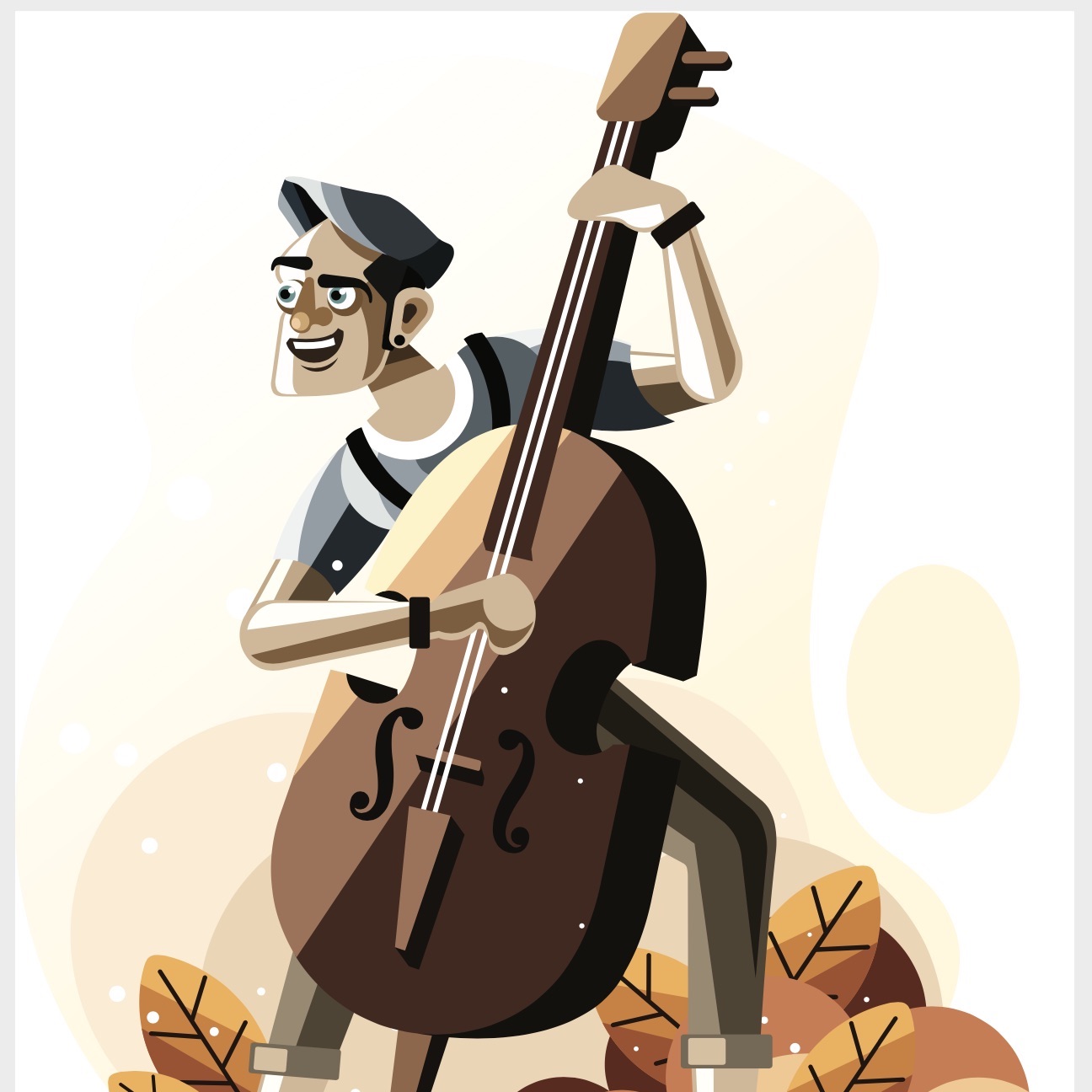Listening is not about yourself, it is about the other person. It’s at that deep level of listening where true engagement comes from. How do you get started and measure what matters and develop this mastery of mindset and listening. Listen to this podcast and to Gerald and find out.
Welcome to Workplace Jazz and How to IMPROVISE, your trusted resource for creating high-performing agile teams and learning the secrets used by today’s jazz musicians and their professional ensembles. I’m your host, Gerald J. Leonard.
Developing a high-performing agile team requires treating each team member as an artist of their craft, which is key to the new lifestyle or the leadership style required to manage today’s environment. It’s attainable through Workplace Jazz.
What is Workplace Jazz? Workplace Jazz is a mindset, a framework, a book, a podcast, and a lifestyle. The great musician Dizzy Gillespie once said, “It’s taken me all my life to learn what not to play.” You see, a high-performing agile team can operate in the zone because the individual members have embraced their instrument and skills with a focus on mastery. When they come together to solve a business problem, they can focus on authentically listening and bringing out the best in each of the others. They have moved from the mindset of I to we.
The problem that teams have today that keeps them performing at a much lower level is that they have not mastered their skills, so when they come together, they have an I focus instead of we focus or a team focus, or mindset. They’ve not mastered the basics, and in this way, when team members come together, they are full of insecurities and doubts about themselves and their capabilities and skills. But like jazz musicians, agile team members need to dedicate time alone to practice; they need to focus on mastery. As each member becomes more proficient, they will become a high-performing team because now they can turn their focus from themselves to the team.
I want to share with you a story from my new book that’s coming out as it’s scheduled to be published this fall by Business Expert Press, and it’s called Workplace Jazz. You see, this story was shared with me by a gentleman named David Snyder, a friend of mine, and he permitted me to share this story in my book, and the story is called the One Mind One Soul: Phenomenon of Jazz Bands.
Picture this, many moons ago, I, meaning my friend David, was visiting Ottawa, Canada, and made his way into a large dance club with some friends. The place was packed, about a thousand people or more. There was a Brazilian jazz band on stage with a flamenco guitar player and all the other jazz players backed by a killer percussion session made up of three conga players from Senegal. I noticed an unusual and unused flamenco guitar sitting on stage alone. At first, after the set was over, I went up and asked the leader why there was an empty spot on stage in an unused guitar. He said that the lead player was sick that night. I asked him if I could sit in with him for the rest of the night, and he laughed at me and told me to go away. I told him that I’ve been playing since I was ten years old and he should give me a chance, so he passed me the guitar from the stage and said, “Play me something.” I said, “Okay.”
Using four fingers on each hand, I did a lightning-fast Pepe Romero-style riff in 32nd notes from the 17th fret to the Open E string, hitting every string and half the notes on the guitar on the way down. He grinned and said in French, “Get up here.” I climbed on stage and played with them for two nonstop hours, during which the crowd went wild, and the dancing became wild and euphoric. We transported the crowd to another place. I had bonded with the conga players, and we were reading each other’s minds. They were grinning at me, and I was laughing at them as they changed key signatures tempos and time signatures constantly over the course of two hours of nonstop music.
We never stopped looking at each other. Once we hit our groove, it felt like we were the same entity, a soul, not really individual people but just part of the same collective. It was surreal. The women were screaming and dancing like crazy below, and so were the men. I felt like I was flying through space with a jet pack on, and the bandleader was smiling ear-to-ear. The crowd asked for five encores, but about two in the morning, everyone was exhausted, so we had to stop. I never spoke a single word to anyone on the band from the moment I put my hands on a guitar, but we knew one another better than brothers by the time we were done. Music, when it really cooks, is transcended that way.
When the show was over, people came up to us, and one guy asked, “How did you guys do that? It was like you knew where the other person was going every second, but you’ve never met, you’ve never played together. How is that possible?” The Senegalese guys just shrugged their shoulders and laughed as if to say they had no answer. But finally, in response to one of our new fan’s persistent questions about improvisational skills and where it came from, I said, “Improvisation is all about listening, deep Listening. You sit in your room for ten years and for 10 hours a day practicing the guitar, and you’re listening to recordings until your hands feel like they’re going to fall off, and you learn to listen, really listen.
“Listening is an intense discipline. Listening is not about yourself; it is about the other person. You learn how to listen to people’s souls, and once you can do that, it becomes magic. You can connect with anyone anywhere, and you don’t even have to ask where they’re going because you already know. At that level of listening, you are sharing the same mind.” Then one of the Senegalese drummers said, smiling, “That’s right, the same mind.”
That night will forever stay in my mind as years later, I was still mentoring musicians and songwriters and belong to many musical associations focused on Improvisation and collaboration. I also own a few consulting businesses but have never left my music roots. I have people wandering in and out of my house and recording studios all the time and a lot of really talented, beautiful people who also know how to listen extremely well. We have a lot of fun together.
Here’s the moral of the story about the jazz club scene in Ottawa. In working with my business clients on leadership issues, I know beyond a shadow of a doubt that the old school approach of leadership, management, and performance management are dying, just absolutely dying away. An entirely new breed of team members is rising, especially in the technology world, and they are extremely just like artists. And in this new teamwork-focused world, it’s all about playing your instrument really well and being able to listen and having tons of respect for the other artists around you sharing the same mind, and that’s where true engagement comes from, deep listening, respect, playing well, mastering your instrument and having fun as part of an orchestra, so to speak. Even if your job isn’t a musical one, if you don’t see this change has occurred, you will be lost.
Here’s the crux of the matter, business is turning into jazz. It’s moving along the same path of improvisational, creative flow, a union of minds and souls because business and entrepreneurship have become so fluid and creative. An entirely new type of leadership is needed, one that sees the organization as a symphony of gifted players and not a room of worker bees. Those days are dead and buried; anyone who can’t see that doesn’t stand a chance.
You see, my friend Dave is an author, a business consultant, a book consultant, a published researcher in psychology, a Harvard graduate, a composer, songwriter, producer, a mentor of many numerous independent artists, and multi-instrumentalist, and he’s a virtuoso guitarist. So I have a question for you, how do you get started with measuring what matters and developing this mastery and deep listening mindset? From now I’m going to give you three options when I close up my podcast to think about.
Option one, how do you use this information I just gave you? Well, one, you can do absolutely nothing. You can listen to this, and you can walk away from the same way you came in and absolutely just stay the way you are and do nothing. Or number two, you can do something, and you can try to figure out how to do this yourself. How do I develop skills like a jazz musician? How do I become that artist at my job? Or number three, you can allow me to help you with doing the heavy lifting. You see, I have a high-performance agile team assessment on my website. If you go to my website, which is www.workplace-jazz.com, and looks on the right-hand side, you’re going to see a notice for a high-performance assessment. Take the assessment and give me a call. Until next time, let’s take this onward and upward. You’ve been listening to Workplace Jazz with me, Gerald J. Leonard, How to IMPROVISE. Thanks for listening.

